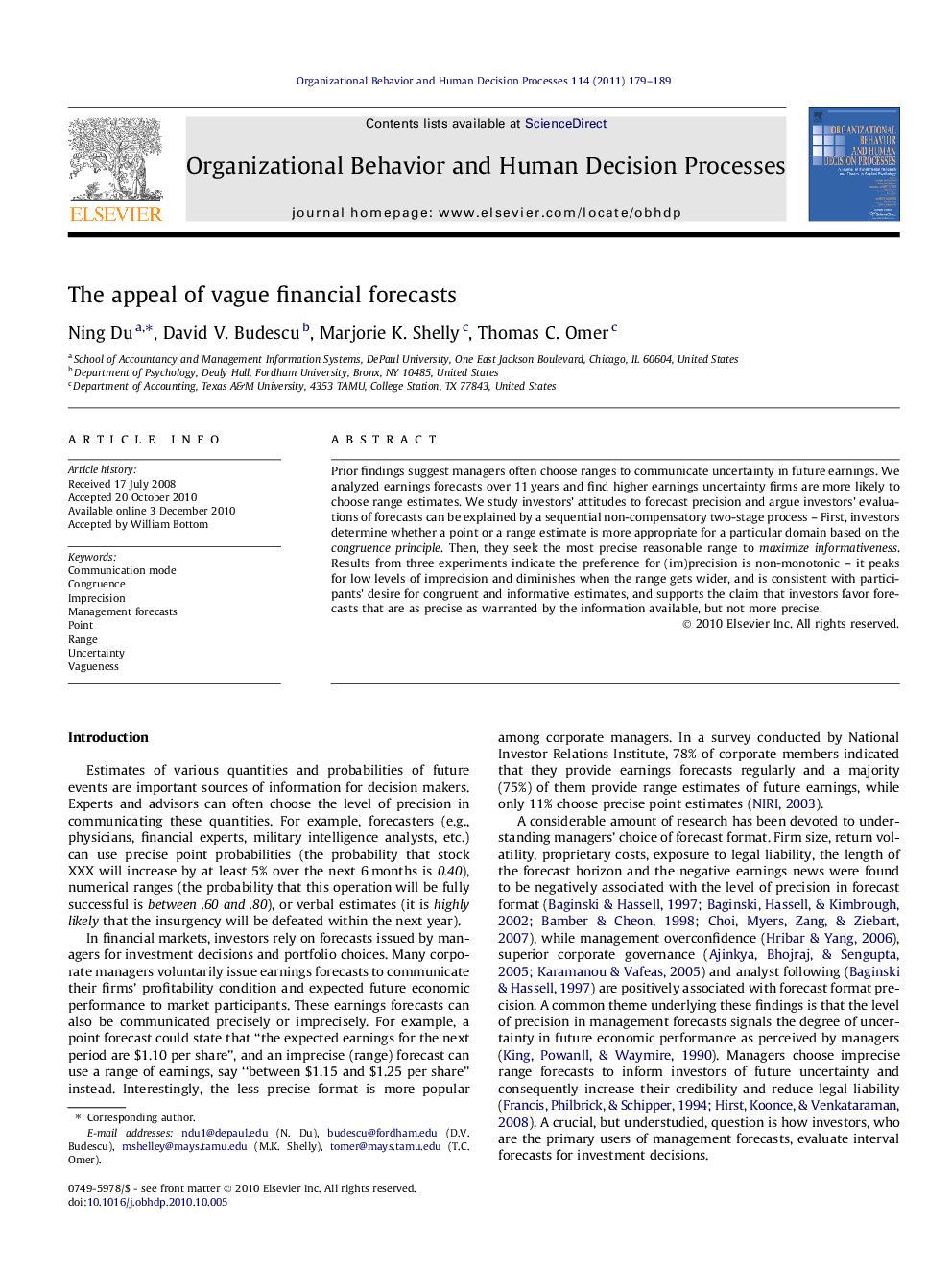| Article ID | Journal | Published Year | Pages | File Type |
|---|---|---|---|---|
| 888757 | Organizational Behavior and Human Decision Processes | 2011 | 11 Pages |
Prior findings suggest managers often choose ranges to communicate uncertainty in future earnings. We analyzed earnings forecasts over 11 years and find higher earnings uncertainty firms are more likely to choose range estimates. We study investors’ attitudes to forecast precision and argue investors’ evaluations of forecasts can be explained by a sequential non-compensatory two-stage process – First, investors determine whether a point or a range estimate is more appropriate for a particular domain based on the congruence principle. Then, they seek the most precise reasonable range to maximize informativeness. Results from three experiments indicate the preference for (im)precision is non-monotonic – it peaks for low levels of imprecision and diminishes when the range gets wider, and is consistent with participants’ desire for congruent and informative estimates, and supports the claim that investors favor forecasts that are as precise as warranted by the information available, but not more precise.
